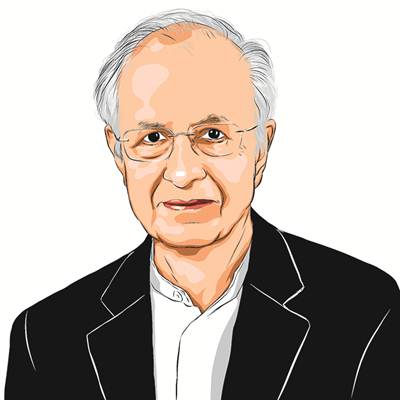Opinion How to be inclusive
Dont pass off the messiness of public life as the music of democracy.
The Indian media has been filled with the sound of vessels. Pots calling kettles black. Both declaring pans are the blackest. And questions about how black the skillets are. Political parties are arguing about who amongst them is most corrupt. Corporate leaders candid views of others are out in the open. The media is turning on its own. And even the judiciary is being doubted. And all are blaming others for the sorry state of the kitchen. The fabric of trust in institutions in the country is wearing very thin. Meanwhile the economy keeps growing,and many economists project that it may grow even faster. Some propagandists for India say that the acrimonious cacophony in the public discourse is the music of democracy. Others say that the disorder in the country is the source of its innovativeness which goes right down to its grassroots. Both these explanations seek to excuse the disorder. They would even suggest that the disorder is the energy for the growth of the economy. Indeed,an analysis of the growth of European economies from 1950 to 2000 showed that the country with the largest proportion of black money in its economy,the most violence and the largest number of government changes (and coalitions) had grown the fastest. This was poor Italy which caught up with queue-forming,institution-respecting Britain. Some would argue that if corruption and chaos turbo-charge the animal spirits,the greed and entrepreneurship required for economic growth,do not dampen them. However,in stampedes of self-concerned people rushing to get ahead,it is always the weakest that get left behind and even trampled upon. This is Indias challenge: the need for not just more growth,but much more inclusive growth. It is the slogan of political parties and the title of the countrys plans: Inclusive Growth. Nobel Laureate Douglass North and other economists have emphasised the role of institutions in the development of economies and societies. Money,savings and investments are necessary for the growth of countries,as they are for the growth of companies. However,just as companies with the same levels of financial performance can have very different cultures,so also countries with the same growth rates can be very different societies. When the leaders of a company get down to seriously developing a vision for their company not merely putting together some fashionable slogans into a vision statement they always ask themselves a soul-searching question: What sort of company do we want to be? So too,we,the people of India,and our leaders,must have a tangible vision of what sort of country we want to be. The Planning Commission has embarked on a more inclusive process of planning than it has ever before. It is engaging with civil society organisations across the country,representing various groups who have felt not sufficiently included in the progress of the Indian economy,to help it shape the approach to the next Plan. These include the urban poor,Dalits,street children,women,minorities,the disabled and rural youth. In a meeting about solutions for the urban poor,a participant pointedly asked whether it would be better to have slower and more inclusive growth than merely faster economic growth. The challenge,the meeting acknowledged,was to have both more inclusion along with faster growth. For this,the meeting concluded,better institutions are the key. Institutions for development,as Douglass North and others have explained,are the rules of the game. Institutions are the principles by which organisations work,and the norms of intercourse between people and between organisations. They are broader than laws and written rules. They include the unwritten rules also. Such rules of the game are the culture of a society. They are driven by the values of people and the goals their leaders pursue. Lord Krishna says in the Gita that when trust in the world breaks down and there is confusion,God will reappear. The corrosion within and amongst institutions in India calls for God to return. Or at least better leaders to rise. Much of the debate in the media has been about who is most responsible for the state of affairs in the country. We must shift the discourse to who will strengthen institutions. In a society in which we do not want one overbearing institution,or an overbearing leader,and in which we want many,independent institutions in business,in the judiciary,in government,and in the media a new class of leaders must arise in all of them.Leaders in these institutions are expected to deliver short-term results of course: quarterly performance in companies,annual plans in government. And they must respond to external events too. Like pilots,they must ensure their organisations land and take off on schedule,and navigate through bad weather. If they do that much well,the passengers on the plane are grateful. However,we now need leaders who will redesign institutions to improve their culture and capabilities. We need a higher order of leadership that will redesign planes as they are flying. The performance of such great leaders is gauged not only by their task delivery. It is revealed by the improvement they bring about in the quality of institutions while they were at the helm. The legacy of such leaders is the institutions they leave behind. India needs institutional builders to shape the capabilities and the values of its institutions. These leaders must change both the written as well as the unwritten rules by which the game is played. Such leaders are needed at the Centre,in the states,and in local bodies too. Many more such role models must rise in political parties,government,corporate sector,judiciary,and the media. Along with a prayer to God,the call for a higher order of leadership in India has become urgent.
The writer is a member of the Planning Commission express@expressindia.com


